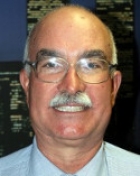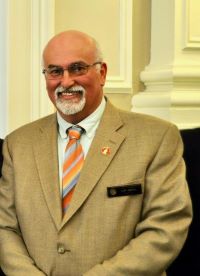ROCHESTER - When any city in New Hampshire prepares to set its tax rate for the next fiscal year, there's one final option they may consider, according to Bruce Kneuer, supervisor of the municipal bureau at the state's Department of Revenue Administration.
"They can consider whether to use some of the unassigned fund balance to reduce property taxes," he said on Thursday.
Two state representatives from Rochester who attended the April 19 City Council meeting are urging the city to do just that.
 |
| Tom Kaczynski |
Cliff Newton, of House District Strafford 9; and Tom Kaczynski Jr., of House District Strafford 22, spoke out against the ongoing practice of using supplemental appropriations, especially those that come out of the city's unassigned fund balance, that they say can be used to subvert and frustrate the intent of the tax cap, which was supported by more than 70 percent of Rochester residents when it was passed in 2008.
Kaczynski argued specifically against the establishment of three $500,000 reserve accounts that will be up for consideration by the City Council on Tuesday. The three accounts would put a half-million dollars each into line items for fire department apparatus, public buildings construction and renovation and DPW vehicles and equipment.
"I call it a shell game," Kaczynski said. "I say slow down, another slush fund is not needed."
He wants the money to go back to the taxpayers, who suffered financial hardship due to the pandemic.
"They need some property tax relief," he added.
At the center of the controversy is how to utilize the unassigned fund balance, loosely defined in accounting terms as "the residual classification for the government's general fund and includes all spendable amounts not contained in the other classifications."
 |
| Cliff Newton |
Newton refers to it as the "cookie jar," money that city government has amassed through unspent tax revenue as well as user fees such as vehicle excise taxes, even dog licenses.
Kneuer said when Rochester set this year's tax rate on Dec. 1 its unassigned fund balance was around $26,389,000, which is 29.18 percent of its general fund operating expenses.
The city's own code regarding unassigned fund balances states that "the unassigned fund balance for any fiscal year shall be maintained at a minimum level of between 8 percent and 17 percent of total General Fund expenditures for the City for that fiscal year.
Newton says that means the city is well within the parameters to use some of the unassigned fund balance for property tax relief.
He thinks the city is using the supplemental appropriations from the "cookie jar" to just create more line items from which to shift money around.
Newton said he counted up more than 50 supplemental appropriations between last July and April. He says all these appropriations are allowing the city to circumvent the intent of the tax cap, hence his calling it the "cookie jar."
Kneuer said while some may not like what the City Council is doing by establishing these "reserve accounts," it's perfectly legal as they are the legislative power elected by the people.
He said how much a city keeps in its unassigned fund balance differs greatly. He said some cities keep just 1 percent. Others, like Rochester at almost 30 percent, keep a lot more.
Another speaker at the April 19 meeting, Human, agreed with Newton and Kacynski.
"If you gonna slush money around slush it back to the taxpayers," he quipped.
Another resident, Linda Wentworth, chided the council for not seeming to pay attention while Newton and Kaczynski were trying to argue their points.
"Some are focusing, others are not," she said.
She said she thought residents should have a say in the way the money from the unassigned fund balance is spent.
It should be noted that The Rochester Voice reached out to discuss the matter with City Manager Blaine Cox, who stated in writing that he would have no comment until after Tuesday's vote.
Meanwhile, the agenda for next Tuesday states that the city will have a response to public comment at the April 19 meeting.
Rochester Mayor Paul Callaghan told The Rochester Voice on Thursday he was swamped with work and would have no time to discuss the matter till Tuesday's meeting.
For Newton, it's all about transparency and fairness.
"This is harming the Rochester taxpayer," he said. "We'll have to pay more taxes because of their actions if those supplemental appropriations go through."
"It's our money, give it back," he said. "But government wants to keep your money."














